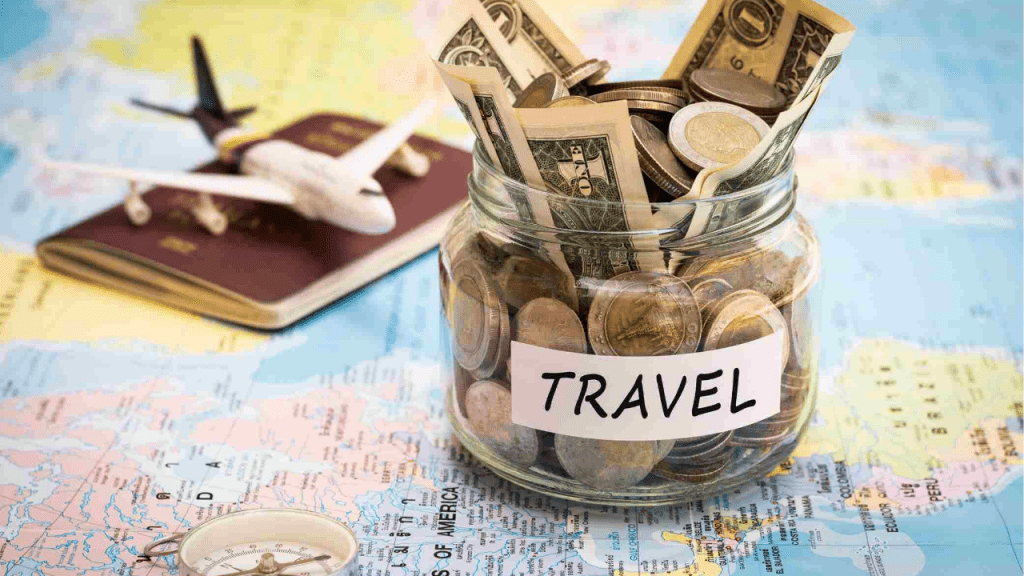Are you an NRI planning a trip to India? Whether you’re visiting family, managing finances, or returning for business, it’s important to understand the legal limits around carrying money into the country. One small oversight can result in penalties at customs. In this blog, we’ll walk you through how much cash you can legally bring to India, the penalties for non-compliance, and safer alternatives to carry or transfer funds.
In this Article
How Much Foreign Currency Can You Carry into India?
According to Indian customs regulations, there’s no upper limit to the amount of foreign exchange you can bring to India. However, there are declaration requirements:
- If you’re carrying more than USD $5,000 in cash, or
- If the total value of cash plus traveler’s cheques exceeds USD $10,000,
You must declare it to customs authorities at the airport by filling out a Currency Declaration Form (CDF).
Failure to declare amounts beyond this limit can result in penalties, confiscation, or legal action under the Foreign Exchange Management Act (FEMA) and the Customs Act, 1962.
Limit on Carrying Indian Currency
While bringing foreign exchange has no upper cap (if declared), carrying Indian currency (INR) into the country has a strict limit. As per current rules, NRIs can carry up to INR 25,000 in cash while entering India.
Penalties for Non-Compliance
If you carry more than the permissible limit in cash or fail to declare the amount, customs authorities can:
- Confiscate the excess cash
- Impose penalties of up to three times the undeclared amount
- Initiate legal proceedings under FEMA or the Customs Act
So it’s crucial to stay informed and ensure proper declaration if you’re bringing large amounts of money.
Safer Alternatives to Carrying Cash
In today’s digital-first world, NRIs don’t need to carry large sums of cash to India. Here are several secure, practical alternatives:
Traveler’s Cheques
A traditional but secure option, traveler’s cheques can be purchased overseas and cashed at authorized Indian banks or hotels.
Bank Drafts
You can bring a bank draft issued by a foreign bank and submit it to a bank in India. The amount gets credited to your account in Indian rupees.
Forex Cards
Forex cards are preloaded cards that work like debit cards. They are easy to carry, can be recharged online, and provide protection from exchange rate fluctuations.
Prepaid Travel Cards
Similar to forex cards, prepaid travel cards offer multi-currency support and flexibility. These are especially useful for NRIs visiting India for short durations.
International Debit/Credit Cards
Carrying an international card linked to your overseas bank account can be a safe way to access money in India. These cards are accepted at most Indian ATMs and POS terminals.
Online Money Transfer Services
Apps like Wise, PayPal, Western Union, and others allow NRIs to transfer funds to India quickly and securely. You can send money directly to an Indian bank account or enable cash pickup from authorized centers.
Transferring Money to NRE/NRO Accounts
Opening an NRE (Non-Resident External) or NRO (Non-Resident Ordinary) account is one of the easiest and most legal ways to transfer money to India:
- NRE Account: Best for transferring foreign income. Deposits are converted into INR, and the funds are fully repatriable.
- NRO Account: Ideal for managing income earned in India, such as rent, dividends, or pensions. Funds are partially repatriable, up to USD 1 million per financial year.
You can open these accounts remotely with the help of trusted banking partners.
Consider Exchange Rates and Costs
Before choosing your preferred transfer method, always compare:
- Exchange Rates: Vary based on global market trends and service providers.
- Service Fees: Some platforms charge a fixed fee or a percentage of the transferred amount.
Understanding these factors ensures you receive the maximum value for your money.
Bringing money into India as an NRI doesn’t have to be stressful—as long as you follow the rules. While there’s flexibility in how much foreign currency you can carry, knowing the declaration thresholds and alternative options like NRE/NRO accounts, forex cards, and online transfers can make your journey smoother and safer.
Make informed choices and enjoy your trip back to India without any financial hiccups.
Frequently Asked Questions (FAQs)
What is the maximum amount of cash an NRI can carry to India without declaration?
An NRI can bring up to USD $5,000 in cash and USD $10,000 in total (including cash and traveler’s cheques) without declaration. Anything above this must be declared to Indian customs.
Can I carry cash for family members while traveling to India?
Yes, but the same limits apply. You can carry money on behalf of others, provided the total does not exceed the declaration limits.
Can NRIs use international payment apps like PayPal or Wise in India?
Yes, NRIs can use these apps to send or receive money in India. Many services support transfers to Indian bank accounts or allow cash pickups.
Is there a daily withdrawal limit for NRE/NRO accounts in India?
Yes. NRE/NRO accounts typically allow ATM withdrawals up to INR 25,000 per day and POS transactions up to INR 50,000 per day, though these may vary by bank.
Should I bring cash or use a travel card while visiting India?
Ideally, carry a small amount of cash for immediate needs and use a forex or travel card for larger purchases or payments. This minimizes risk and currency conversion loss.


